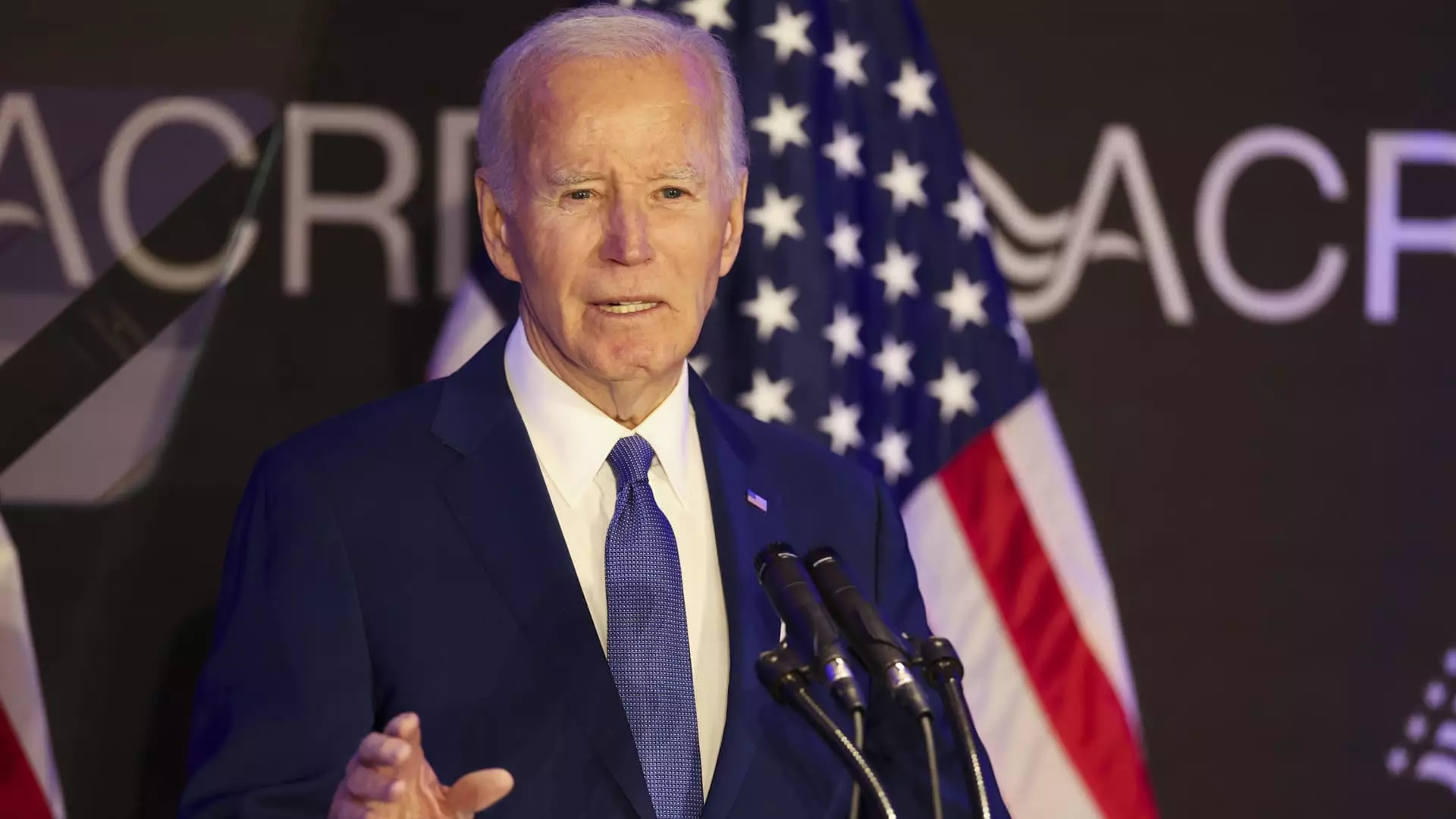With the recent announcement of President Joe Biden’s prostate cancer diagnosis, the political landscape has been jolted awake from its complacent slumber. The news, delivered with both gravity and compassion, reveals a more perilous medical battle than many had anticipated. As he grapples with a stage of the disease that came with a daunting Gleason score of 9, Biden’s health—it seems— will overshadow not only his presidency but the very fabric of American politics. This stark revelation not only fuels the fires of concern about his age but also invites a broader critique of our leaders’ vulnerabilities at a time when we’re charged with figuring out our path forward as a nation.
The Shadow of Age and Health in Leadership
Age has always been a pivotal point in discussions surrounding Biden’s presidency, yet this new challenge raises grave questions about the sustainability of existing leadership. At 82, Biden’s competition with younger candidates was already a tightrope walk; now, it resembles a high-stakes tightrope act where one misstep could precipitate a political disaster. This health crisis will undoubtedly fan the flames of debate about whether an older individual should helm the nation amid such challenges, generating louder whispers of viability among potential successors.
A political environment steeped in skepticism may easily interpret Biden’s diagnosis as a sign that a generational shift is not just desirable, but imperative. This scenario raises concerns over the moral quagmire of retaining leaders who may be physically unfit for their roles. After all, a representative’s vitality is often perceived as a reflection of their ability to govern effectively.
Responses from the Political Sphere
Biden’s health crisis has elicited unexpected responses, even from political foes. Former President Donald Trump, despite his fierce rivalry, expressed sadness over Biden’s condition and wished him a speedy recovery. Such a reaction exposes a certain level of humanity that transcends political boundaries, highlighting a somber reality: health issues can unify us in our shared humanity, even when political ideologies divide us.
However, on the flip side, does this show of solidarity indicate an opportunistic side to political rivals? While the public gesture is commendable, one must wonder whether Trump’s admiration is genuine or calculated to foster a dispassionate politics of mistrust against a critically vulnerable opponent.
Kamala Harris’s sentiments echoed a similar tone, positioning Biden as a “fighter.” While such rhetoric is vital for public morale, it skirts the hard-hitting dilemma at hand—the possibility that the U.S. may soon be in search of a new commander-in-chief, prompting nigh existential conversations around competency, capability, and the inherent duty of leadership.
The Medical Landscape and Its Implications for Policy
As Biden confronts his diagnosis, broader implications about healthcare access and cancer treatment come into play. His previous campaigns, especially the “cancer moonshot,” aimed at reducing cancer deaths, reflect the paramount importance of healthcare reform. Should this health scare galvanize public support for enhanced healthcare policies, could we see a shift in the political narrative?
In a nation where access to affordable healthcare is a constant battle, Biden’s struggle may inspire collective action; however, it could also exacerbate the fears of millions grappling with their own medical challenges. If met with transparency, this personal struggle could serve as a political rallying cry to reshape healthcare for the betterment of all.
The Path Forward: A Critical Juncture for Biden and the Nation
As Biden evaluates cancer treatment options with his medical team, the nation collectively holds its breath. The weight of his presidency hangs in the balance, fraught with both optimism and anxiety. This moment not only reaffirms the fragility of human health but also highlights the need for genuine dialogue around aging and governance.
Biden’s journey through this diagnosis will not merely dictate his future; it may redefine the very essence of leadership in America. A singularly focused mission for a better healthcare model, along with an insightful discourse about leadership, is now more imperative than ever. The challenge lies ahead—is the political sphere ready to rise to the occasion, or will it falter in the face of adversity?


Leave a Reply